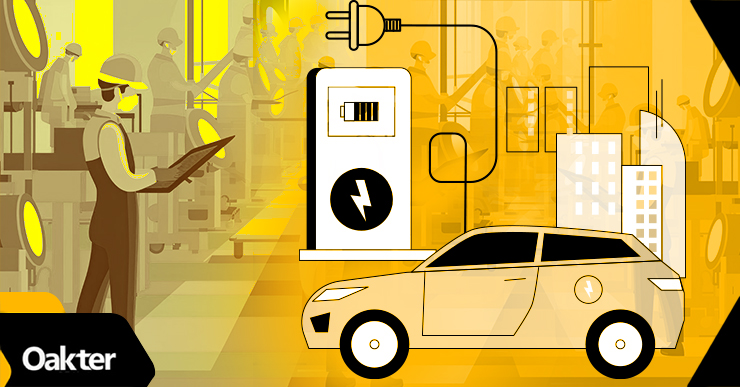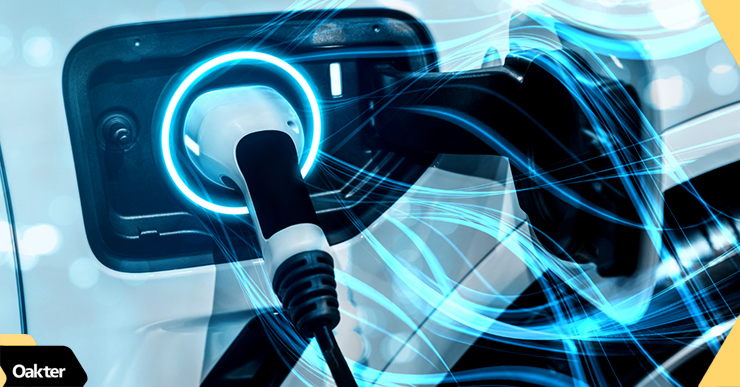
EV Charger Manufacturers: The Key Challenges for India
Charging stations are an important component of a sustainable EV infrastructure in India and will be required if we are to transition to cleaner energy.
But how many EV chargers do we need to reach our goal of having 30% EVs on the road by 2030?
At present, the government has ambitious plans to install 2,636 electric vehicle charging stations in 62 cities across 24 states and union territories by the end of 2023, and the numbers will only grow from there.
This is encouraging more companies to foray into manufacturing and build their capabilities as EV charger manufacturers. In fact, India could become a leading EV charger manufacturer as it possesses manufacturing capacity and a rapidly expanding domestic market.
However, being a leading EV charger producer is easier said than done.
EV Charger Manufacturers: Key Challenges

Let’s look at some of the challenges that India must face on its way to becoming one of the top EV charger manufacturers.
1. Lack of infrastructure
One of the biggest problems is that India lacks a comprehensive EV charging infrastructure, with only a few charging stations scattered around the country.
This is relevant because one of the primary factors preventing people from embracing EVs is range anxiety caused by a lack of charging infrastructure. There is a significant demand for both public (intra-city and highway) and home charging stations for EV owners.
The lack of charging stations leads to a cyclical problem: consumers are afraid to invest in EVs. Therefore, corporations lack the investments to develop and set up charging stations on a large enough scale.
This is not all. Electric vehicle charging manufacturers are also battling charge anxiety – whether or not owners will find a charging station at all in their vicinity.
A solution to allay this anxiety is an open system or platform that allows vehicle owners to see where the closest charging stations are, record information, and monitor their vehicle’s battery level in real time.
Hence, to rank higher amongst EV charger manufacturers, a major investment is required to develop a robust charging network and a support system to increase the usage of EVs.
2. Limited R&D
Many exciting advancements are taking place around the world in the EV value chain, as well as in EV charging.
Some of the charging innovations include new battery chemistry, enhanced BMS solutions for batteries, battery management, faster ways to charge electric vehicles, and so on. Globally, companies are investing huge amounts in R&D.
While there have also been advances and innovations in India, the country’s R&D capabilities in EV technology, particularly charging infrastructure, are comparatively limited in comparison to other countries because of India’s slightly later start.
3. High cost of manufacture
Currently, India cannot compete with large-scale EV charger manufacturers producers like China for several reasons. One is that its EV charger production partly depends on imported parts.
To be a top EV charger manufacturer and compete with giants like China, India must increase the efficiency of its supply chain and reduce production costs through economies of scale.
4. Dependence on imports
Until recently, India relied significantly on imported parts for charging stations. However, it is gradually attempting to become ‘atmanirbhar’ (self-reliant) in terms of not only charging station components but products for the entire EV value chain, as this is the only long-term method to support the EV market.
Components that are now imported necessitate high technology and manufacturing expertise, which are currently unavailable in India. Some of them include:
- Different types of charging connectors and plugs for connecting the charger to the Electric Vehicle (EV).
- EVSE components like AC and DC charging stations, power electronics, control boards, communication modules, and sensors.
- Charging cords for connecting the charging station to the EV, including Type 1 and Type 2 cables.
- Battery Management Systems (BMS) for optimising charging efficiency, monitoring battery health, and preventing overcharging or overheating. The BMS is yet to become autonomous even though it has already become somewhat localised.
However, in its effort to be amongst the top EV charger manufacturers, India is continually facilitating production processes.
5. Insufficient skilled labour
The EV charger manufacturers need qualified workers. Despite having a large talent pool, the automobile industry lacks the specialised skills needed to operate in the electric vehicle market, which could lead to several issues if EVs suddenly become widely used on the roads.
This lack of skilled personnel engineers is another significant challenge that must be managed in the long run. Hence, partnerships with academic institutions and talent development programmes could assist in addressing this issue.
6. Lack of standardisation
In India, while charging infrastructure is an issue, there is also the issue of various versions of charger and connector types. No two EV chargers are the same, posing a whole new set of challenges.
Addressing the challenges of standardisation would require concerted efforts from the government and industry stakeholders. Only in this way can India create a conducive ecosystem for it to emerge as a top EV charger manufacturer.
Final words
Yes, India has the potential to become a top EV charger manufacturer because it is a major global manufacturing hub with a well-established production base and technical expertise in fields such as automotive and electronics.
This current infrastructure can be leveraged to produce EV chargers as several Indian companies are already doing and investing in research and development to improve the technology.
Furthermore, the Indian market offers distinct benefits for the manufacture of EV chargers. Labour is relatively cheap in India, making manufacturing more cost-effective. Furthermore, India is rapidly developing its potential for renewable energy, which can aid in developing green charging infrastructure.
In addition to all of the above, the Indian government has set ambitious targets for EV adoption and has been putting in place various measures and policies to encourage electric mobility in the country. As a result, demand for EV chargers is increasing, providing an opportunity for Indian producers.
However, the road ahead is bumpy and long. India needs to bump up infrastructure, standardise, invest in R&D and skilling, and produce all components required for its entire EV ecosystem locally- only then can it fully realise its potential as a top EV charger manufacturer.
Finally, collaborations, partnerships, and investments from both domestic and international players can further enhance India’s position in this dawn sector.
To know more about our expertise in EV charger manufacturing and find out how you can partner with us, get in touch.

